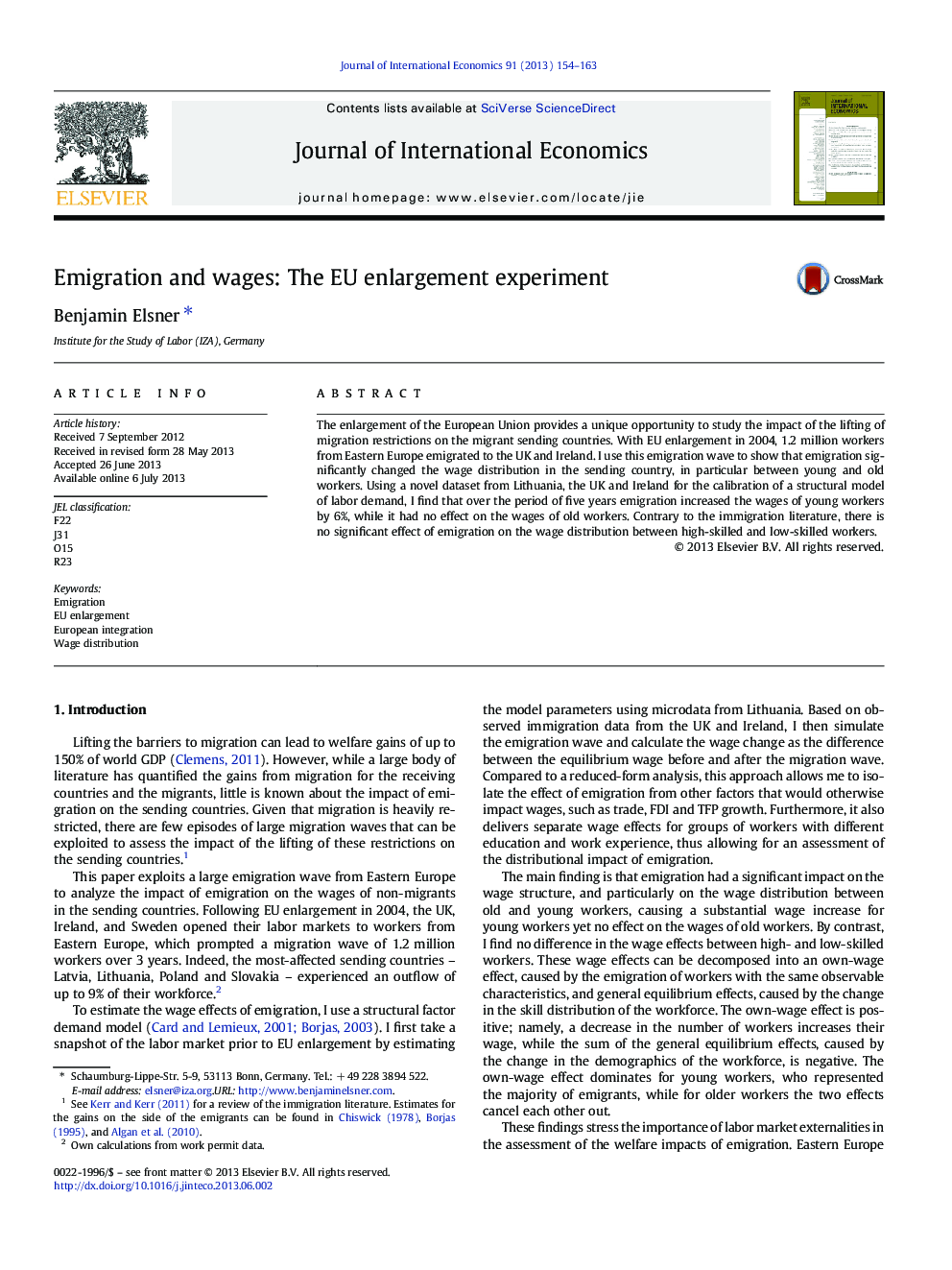| Article ID | Journal | Published Year | Pages | File Type |
|---|---|---|---|---|
| 962971 | Journal of International Economics | 2013 | 10 Pages |
•The paper estimates the impact of emigration on wages in the sending countries.•It exploits a large and sudden emigration wave from Eastern Europe after 2004.•Using data from 3 European countries I estimate and calibrate a structural model.•I find that emigration increased the wages of young workers.•Yet it had no effect on the wages of old workers.
The enlargement of the European Union provides a unique opportunity to study the impact of the lifting of migration restrictions on the migrant sending countries. With EU enlargement in 2004, 1.2 million workers from Eastern Europe emigrated to the UK and Ireland. I use this emigration wave to show that emigration significantly changed the wage distribution in the sending country, in particular between young and old workers. Using a novel dataset from Lithuania, the UK and Ireland for the calibration of a structural model of labor demand, I find that over the period of five years emigration increased the wages of young workers by 6%, while it had no effect on the wages of old workers. Contrary to the immigration literature, there is no significant effect of emigration on the wage distribution between high-skilled and low-skilled workers.
